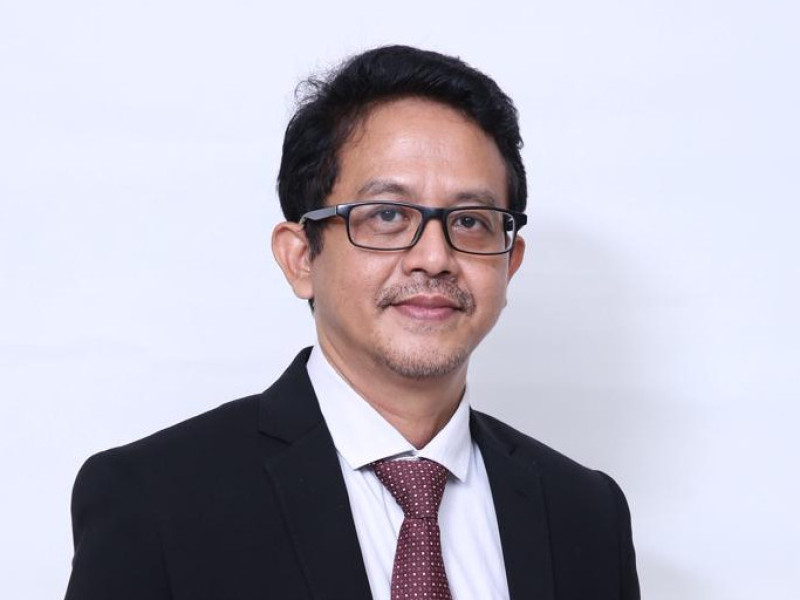Noorhaidi Hasan (the rector and professor of Islam and politics at Sunan Kalijaga State Islamic University, Yogyakarta, Indonesia).
Southeast Asia’s rich religious diversity is both a strength and a source of ongoing challenge.
In recent years, the region has witnessed rising religious tensions and conflicts, often fueled by competition for economic, social and political resources. These divisions, if left unaddressed, can have far-reaching consequences. In the short term, they risk triggering violence, disrupting social cohesion and undermining local economies. Over the long term, they can deepen inequality, foster extremism, erode democratic institutions and strain international relations. As Southeast Asia undergoes rapid development, it cannot afford to let religious conflicts jeopardize its stability, growth and social fabric.
To address these challenges meaningfully, interreligious harmony must be reframed — not merely as a matter of security or tolerance, but as a foundational element of social justice and inclusive nation-building. A multilayered and systemic approach is needed, encompassing legal reform, education, civic engagement and economic inclusion. Such an approach must also empower communities to lead in crafting solutions rooted in their cultural contexts.
At the governmental level, promoting inclusivity begins with upholding the rights of religious minorities through comprehensive legal reforms. These reforms should ensure equal protection under the law while addressing systemic barriers in areas such as education, housing and public services. Policies must be co-developed with religious and community leaders to ensure cultural sensitivity and broad-based acceptance. Just as crucial is the allocation of resources to grassroots peacebuilding programs that foster local ownership of interfaith dialogue and conflict prevention.
Religious leaders and faith-based organizations also play pivotal roles. By promoting theologies of peace, justice and mutual respect, they can be powerful agents of reconciliation. Cross-faith collaborations that address shared challenges — such as poverty, education access and disaster relief — help to forge solidarity across religious lines.
Education, too, is central. Schools and universities must be equipped to foster religious literacy, critical thinking and media awareness. Interfaith service projects, cultural exchanges and student-led dialogue initiatives offer young people the opportunity to cultivate empathy and challenge stereotypes from an early age.
Civil society organizations and nongovernmental organizations can facilitate these efforts by convening interfaith dialogues, monitoring violations of religious freedom and supporting victims of discrimination. Media and tech companies must take responsibility for curbing sensationalism and misinformation, while promoting narratives of coexistence. The business sector, meanwhile, can create inclusive workplaces and invest in marginalized communities to address structural inequalities. Youth-led movements — particularly those active on social media — can challenge online hate and create new spaces for positive engagement across religious lines.
Indonesia, with its vast religious pluralism, offers a rich repository of lessons for managing diversity and strengthening social cohesion. Its experience illustrates that sustainable interfaith harmony requires a layered approach spanning policy, grassroots engagement and cultural leadership.
One standout initiative is the Desa Damai (Peace Villages) program, led by the Wahid Foundation. Active in areas such as Pekalongan and Bogor, the program equips villages with tools for peacebuilding, economic cooperation and early warning systems to prevent religious violence. Women and youth are trained as peace agents, creating a locally grounded and gender-inclusive model for resilience against radicalism.
At the national level, the Ministry of Religious Affairs’ Moderasi Beragama (religious moderation) initiative has integrated the values of Pancasila — Indonesia’s pluralist state philosophy — into the training of religious leaders and educational curricula. Since its implementation in 2019, the initiative has helped steer public discourse toward moderation and away from sectarianism, though challenges in consistent local enforcement remain.
Youth engagement has been particularly impactful. Organizations such as the Young Interfaith Peacemaker Community (YIPC) and Peace Generation Indonesia have organized peace camps, interfaith workshops and digital campaigns that challenge religious stereotyping and foster cross-cultural friendships. Their influence was especially evident during politically tense moments, such as the 2017 Jakarta gubernatorial election, where they countered divisive rhetoric with messages of unity and empathy.
In post-conflict areas in Indonesia like Ambon and Poso, peace accords and joint development initiatives have transformed former battlegrounds into spaces of reconciliation. Interfaith festivals and collaborative economic projects now symbolize a shared commitment to peace.
Indonesia’s multifaceted approach — combining state policy, grassroots empowerment and civic activism — demonstrates that interfaith harmony is achievable when efforts are inclusive, locally driven and supported by robust institutions.
If we were to build a harmonious Southeast Asia that is better positioned to attract investment, foster innovation and play a leading role on the world stage, we need commitment and deliberate action from every sector of society. At the recent International Conference on Cohesive Societies (ICCS), hosted by Singapore, global thought leaders, policymakers, community practitioners and young change-makers discussed how we could build multicultural societies that are grounded in trust, empathy and shared values. The dialogues over the three-day Conference centered on a desire for a world where political discourse transcends sectarian divides, where digital platforms foster constructive dialogue instead of amplifying hate, and where our diversity becomes a source of strength rather than division.
This vision is not utopian — it is necessary. Reframing interfaith harmony as a pillar of social justice and inclusive nation-building is key to Southeast Asia’s stability, prosperity and global relevance. The stakes are high, but so is the promise: a region that not only overcomes its divisions but leads the world as a model of peaceful pluralism and shared humanity.
Noorhaidi Hasan (the rector and professor of Islam and politics at Sunan Kalijaga State Islamic University, Yogyakarta, Indonesia).


